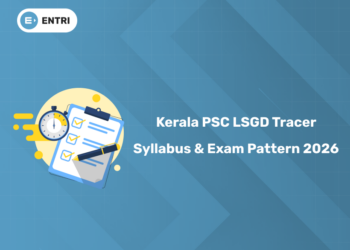Table of Contents
Aspiring to study at the University of Oxford is a dream for many students worldwide, and the one key factor in achieving that goal is meeting the English language proficiency requirements. For the non-native English speakers, proving the language skills through the standardized tests like the IELTS (International English Language Testing System) is very important factor. Oxford University sets the specific IELTS score requirements depending on the course of study.In addition understanding these benchmarks is important for your application success.
Master the IELTS Exam with Online Coaching – Enroll Today!
Introduction
Fulfilling the IELTS score requirements is an essential step in the application process if your goal is to study at the Oxford University. A Higher Level IELTS score of 7.5 overall, with at least 7.0 in the each section, is required for most courses. However, some may accept a Standard Level score of 7.0 overall, with at least 6.5 in the each section. Achieving your Oxford ambition would be easier if you are aware of the particular requirements of the course you have selected and have prepared well for the IELTS.
Your IELTS score ultimately shows how capable you are of succeeding in the Oxford’s exact academic environment. You can succeed on the IELTS test and move on to an excellent education by adopting the appropriate strategy.
About British Oxford University
1: Most university students ........................ on campus in their first year.
The Oxford University, formally known as the University of Oxford, is one of the most prestigious and the ancient institutions of higher learning in the world. The university is located in Oxford, England, it possess a rich history dating back to the 12th century. And also which making it the very oldest university in the English-speaking world.
The Historical Significance
Oxford University was founded in approximately 1096 and has a rich history that includes contributions to many academic subjects and outstanding the academic performance. Its early beginnings may be traced to the time when academics first started teaching in the city of Oxford, and it has long been a hub of learning and the scholarship. The migration of scholars from the University of Paris in the 12th century, which contributed to the establishment of the university’s institutional and the academic framework, had a significant impact on the university’s development.
Academic Excellence
Oxford University is renowned for its excellent academic programs and its commitment to research and the intellectual inquiry. It offers a wide range of undergraduate, graduate, and the doctoral programs across various disciplines, including the humanities, sciences, social sciences, medical sciences, and the engineering. The university’s tutorial system, which provides the students with the personalized instruction and mentorship, is a key feature of its educational approach.
Colleges and the Structure
Oxford has a distinctive collegiate system with the six permanent private halls and 39 independent colleges. Every institution has its own administrative structures, facilities, and admissions policies, and each runs independently. This approach makes for a tailored and encouraging the learning environment while promoting a close-knit academic community. In addition to being members of their college, students also benefit from the resources and opportunities offered by the larger university.
Notable Alumni
An impressive range of alumni from Oxford University have made noteworthy contributions to a variety of professions. Several heads of state, Nobel laureates, well-known authors, and the accomplished scientists are among its graduates. Among them are Sir Stephen Hawking, writer J.R.R. Tolkien, the former US President Bill Clinton, and former British Prime Minister David Cameron.
Global Influence
The institution has a huge global effect because of its academic programs and the research, which have an impact on many facets of society and business around the globe. Oxford engages in the international research efforts and the intellectual exchanges by collaborating with the institutions and the organizations worldwide. The global reach of its alumni network is expressive of the university’s significant impact and the renown.
Master the IELTS Exam with Online Coaching – Enroll Today!
Ace Your IELTS Exam with Confidence!
Unlock your potential with our expert-led IELTS preparation course. Achieve your dream score and open doors to global opportunities!
Start Your IELTS Journey Today!Why IELTS is Important for Admission to Oxford University
Oxford University’s admissions process heavily relies on the results of the IELTS (International English Language Testing System). This is because the university holds itself to high academic standards and is dedicated to making sure that all students, especially those who are not native English speakers, have the language skills required to succeed in a demanding academic setting. Oxford values IELTS for the following reasons:
1. The Academic Proficiency
Because Oxford University’s programs involve extensive study, conversations, and coursework, a high level of English ability is required. The IELTS exam evaluates four main language skills: speaking, listening, reading, and writing. This gives a thorough assessment of a candidate’s proficiency in understanding and using English. Oxford makes sure that students may participate completely in the curriculum and achieve at a high academic level by establishing prerequisites for IELTS scores.
2. Effective Communication
Success at Oxford requires effective communication. It is imperative for students to possess the ability to express themselves coherently in written and spoken English, engage in group discussions, and comprehend academic books and lectures. These abilities are assessed by the IELTS exam, which makes sure that students are able to work with others, express their thoughts clearly, and make a significant contribution to their learning environment.
3. Preparation for the Excellent Academic Work
The IELTS will exam helps students become ready for the excellent of an Oxford education by simulating the academic assignments and the real-world communication situations. Getting a good grade shows that students are not just fluent in English but also capable of managing their workload and participating in the challenging coursework.
4. The Standardized Measurement
An essential tool for evaluating the English language competency for a broad and multinational student body is IELTS, which offers a standardized approach. Oxford can objectively assess the language proficiency of applicants from various linguistic and the educational backgrounds by demanding the IELTS results, which ensures the fairness and uniformity in the admissions process.
5. Integration and the Success
A strong command of English is essential for the academic success and the integration into the Oxford community. The IELTS score helps predict how well students will adapt to the university’s academic culture and participate in its intellectual life. High scores indicate that students are likely to excel in their studies and fully benefit from the educational opportunities available at the Oxford.
6. Meeting the University Standards
To guarantee that they can satisfy the high standards of their programs, the students must demonstrate their English ability in accordance with the Oxford’s strict academic standards. In order to help the institution uphold its reputation for the academic achievement and make sure all the students are prepared to meet its requirements, the IELTS score acts as a benchmark for these criteria.
Minimum IELTS Score Requirement for Oxford University
Oxford University is committed to ensuring that all students, especially non-native English speakers, have the language ability necessary to succeed in its demanding academic environment, which is reflected in the minimal IELTS score criteria for admission. The minimal IELTS score requirements and their meaning are explained in detail below:
Minimum IELTS Score Requirements
Oxford University’s IELTS score criteria are made to make sure that all students, especially those from non-English speaking backgrounds, have the language proficiency needed to succeed in the demanding academic setting. Oxford upholds its dedication to academic excellence and facilitates students in realizing their maximum potential by establishing these criteria. Depending on the course, Oxford University often has two different IELTS requirements.
Explanation of Requirements
1. Standard Level (Score of 7.0)
Oxford demands a Standard Level IELTS score of 7.0 overall, with no less than 6.5 in any one area, for several undergraduate and graduate programs. This level shows a proficient command of the English language, suitable for the majority of academic activities, such as following conversations, understanding lectures, and finishing written assignments.
Significance:
- Comprehensive Understanding: A score of 7.0 overall ensures that students can handle the reading and writing requirements of their courses, which might include understanding complex texts and producing coherent essays.
- Effective Communication: The minimum of 6.5 in each section ensures that students can engage effectively in classroom discussions, understand spoken content, and communicate their ideas clearly.
2. Higher Level (Score of 7.5)
Oxford demands a Higher Level IELTS score of 7.5 overall, with at least 7.0 in each part, for more challenging programs, like those involving substantial study or complicated subject matter. This higher score indicates a greater level of English proficiency, which is required for the rigorous coursework and advanced conversation that Oxford expects.
Significance:
- Advanced Proficiency: A score of 7.5 overall indicates that students have an advanced command of English, capable of handling sophisticated academic tasks, engaging in detailed and nuanced discussions, and producing high-quality written work.
- High Academic Standards: The requirement of at least 7.0 in each section ensures that students are uniformly proficient across all areas of language use, which is crucial for success in a demanding academic setting.
Why These Scores Matter
- Academic Success: Oxford’s programs are challenging and require students to have a high level of English proficiency to understand and engage with complex concepts, conduct research, and participate in discussions.
- Effective Participation: High IELTS scores ensure that students can effectively participate in tutorials, seminars, and other interactive components of the Oxford educational experience.
- Standardization: IELTS provides a standardized measure of English proficiency, which helps Oxford objectively assess and compare the language abilities of international applicants.
- Integration: Adequate language skills are essential for students to integrate into the Oxford academic community, interact with peers and faculty, and make the most of the university’s resources and opportunities.
Master the IELTS Exam with Online Coaching – Enroll Today!
IELTS Score Validity and Application Process
1. IELTS Score Validity
The Validity Period:
- The IELTS scores are typically valid for two years from the date of the test. After this period, the scores are considered that expired as the language proficiency can change over time.
Importance of the Validity:
- Universities, including the Oxford, require the current scores to ensure that the applicants’ English language abilities are up-to-date and reflective of their proficiency level. Also the outdated scores may not accurately represent an applicant’s current language skills.
2. IELTS Score Application Process for Oxford University
Step 1: Research the Course Requirements
- Check the IELTS requirements for your chosen course on the official Oxford University website or contact the admissions office. Different courses may have varying the IELTS score requirements.
Step 2: Register for the IELTS Test
- Book your IELTS test through an authorized test center. Choose a test date that allows the sufficient time for the preparation and the receipt of results before your application deadline.
Step 3: Prepare for the Test
- Prepare thoroughly using the study materials, practice tests, and possibly enrolling in an IELTS preparation course. Aim to beat the minimum score requirements to strengthen your application.
Step 4: Take the Test
- Attend the IELTS test on the scheduled date. The test consists of four sections: Listening, Reading, Writing, and Speaking. Your performance in the each section will contribute the overall band score.
Step 5: Receive Your Results
- Receive the IELTS results usually within 13 days after the test date. Ensure that your scores meet the minimum requirements specified by the Oxford.
Step 6: Include the IELTS Scores in Your Application
- Submit the IELTS scores as part of your application to the Oxford University. This is typically done by entering the scores into the online application system. Also sending them directly to the university through the IELTS Test Report Form (TRF) service.
Step 7: Verify the Submission
- Should onfirm the receipt of your scores with the Oxford University to ensure that they have been properly received and processed as part of your application.
Step 8: Follow Up
- You should monitor your application status and be prepared to provide additional documentation if requested. Keep track of any deadlines related to the submission of test scores and the other application materials.
Ace Your IELTS Exam with Confidence!
Unlock your potential with our expert-led IELTS preparation course. Achieve your dream score and open doors to global opportunities!
Start Your IELTS Journey Today!IELTS Preparation Tips for Oxford University Applicants
Preparing for the IELTS test can significantly impact your ability to meet the Oxford University’s high language proficiency standards. Here are some important tips to help you excel:
1. Understand the Test Format
- Listening: There are 4 sections, and 40 questions. You’ll be listen to the recordings and answer thequestions.
- Reading: There are 3 sections, and 40 questions. Comprehend and analyze the various texts.
- Writing: There will be 2 tasks. Write an essay and a report or letter.
- Speaking: There will be 3 parts. Should engage in a personal interview, discussion, and the task-based conversation.
- Use the official IELTS practice materials and the sample tests to understand the format and types of the questions.
2. Focus on the Academic English
- Reading: Read the academic articles, journals, and essays to improve the comprehension and vocabulary.
- Writing: Practice the writing essays and reports on the academic topics. Focus on the structure, argumentation, and the formal language.
- Listening: Listen to the academic lectures, podcasts, and the debates to get familia to different accents and the technical language.
- Speaking: Engage in discussions on the academic subjects, practice explaining the complex ideas clearly.
3. Improve the Time Management
- Simulate the test conditions by timing yourself during the practice sessions. This helps build the strength and speed needed for the actual test.
- Develop the strategies to allocate your time effectively for the each section. Avoid spending too much time on any single question.
4. Enhance All the Four Language Skills
- Practice with a variety of the English accents. Use the IELTS practice tests and resources like the TED Talks and the news broadcasts.
- Read widely, including the newspapers, scientific articles, and the literature. Practice removing for the information and scanning for the details.
- Write essays and the reports on the different topics. Seek the feedback from the teachers or the online writing communities to improve.
- Engage in the regular conversations in English. Practice the speaking clearly and confidently, and work on your pronunciation and the fluency.
5. Use the Official Preparation Resources
- Utilize the official IELTS preparation books and the online resources. These materials will reflect the actual test format and provide the valuable practice.
- Consider enrolling in an IELTS preparation course if you need structured guidance and the professional feedback.
6. Take Care of Your Well-being
- Ensure that you are well-rested before the test. A clear and alert mind performs better.
- Maintain a balanced diet and the exercise regularly. Good physical health contributes to the mental sharpness and the focus.
7. Take the Practice Tests
- Take the full-length practice tests under the timed conditions to gauge your readiness and identify the areas for improvement.
- After the each practice test, review your answers to understand your mistakes and then, work on them.
8. Seek the Professional Guidance
- Consider working with an IELTS tutor or attending the workshops to receive the personalized advice and the strategies.
- Participate in the language exchange programs or the conversation clubs to practice the speaking and listening in the informal settings.
9. Focus on the Test Day Preparation
- Familiarize yourself with the test center location and the procedures. Arrive early to avoid any last-minute stress.
- Ensure to bring valid identification and the any other required documents.
- Use the relaxation techniques to stay calm and focused during the test. Confidence and a clear mind contribute to the better performance.









